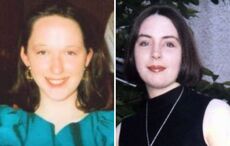A leading campaigner on social issues has suggested that Irish authorities should take children away from drug abusing parents until they are in a position to look after them properly.
Fr Peter McVerry has told a Dublin conference that drug addicts cannot give their children the love and attention they need.
The well-known priest also revealed his view that living with addicted parents makes children ‘harder of heart’ and leaves them with less empathy for others in society, leading to greater levels of violence in communities.
Fr McVerry urged a national debate on how the children of active drug users are looked after by society.
“I’m really just putting it out for debate. I just see the children, young children, of active drug-using parents and I just feel so sad for those kids,” said Fr McVerry.
“And I think it’s very unfair that kids should grow up in a situation where they’re not really being cared for, they are not receiving the love and affection and the attention that children need because the parents are caught up with their own issues and their focus is on themselves rather than on their children.”
Speaking at a conference in Dublin Castle to mark the 30th anniversary of the Ballymun Youth Action Group, Fr McVerry proposed that kids be removed from their families, temporarily or permanently, while their parents are active addicts.
“Alternatively you take the child away from the parents until the parents are in a position to properly look after the child. People are very reluctant to do that,” he added.
“We’re very reluctant to do either of them because of the expense involved, but if we’re going to put children first it is an issue we really have to decide on.
“But if we’re going to prevent the children of drug-using parents from becoming themselves drug-users, there has to be some major intervention in the life of the child or in the life of the family, or both.”
A Ballymun resident, where the Youth Action Group is Ireland’s longest-running community drugs project, Fr McVerry said he is now witnessing third generation drug abuse within his community.
“I’ve seen the second generation. I think they’re much harder to deal with than the first generation,” said the priest.
“There is a hardness there and a resistance there to some interventions that wouldn’t have been there in the first generation and my fear is that that is going to accumulate as the generations go on.”




Comments